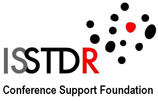The International Society for Sexually Transmitted Diseases Research
Digital Policy
Digital interventions are expanding to improve sexual health. Digital here refers to social media (e.g., Twitter, LinkedIn), instant messaging (e.g., WhatsApp), USSD (unstructured supplementary service data, more details here), and related online communications. ISSTDR uses digital media to engage, attract and retain members as well as public health and industry partners to promote our mission of fostering scientific knowledge, developing leadership, and championing practice in the field of sexually transmitted infections. The purpose of this policy is to guide the appropriate use of ISSTDR’s digital media, broaden public engagement and reduce inequity in access to sexual health information, and mitigate risk. This policy applies to anyone creating content for an ISSTDR digital account.
The following values guide the ISSTDR digital policy:
Public engagement
ISSTDR content should be appropriate for a broad public audience on Twitter or similar digital platforms. We realize that online engagement can sometimes become contentious. Responding to negative messages and blocking people should only be done after consultation with the Digital Committee.
Evidence-based
Digital content must be grounded in evidence. All post should have reference to the data source. If there is a question or doubt about posting, the individual should email the Chair of the Digital ISSTDR Committee for advice.
Transparency
Any potential conflicts of interest should be declared in digital media. More detailed definitions of ISSTDR conflicts are available in the bylaws.
Relevance to the Mission
Communications on ISSTDR-owned accounts must be directly or indirectly linked to the mission of ISSTDR. Trainees, staff, vendors, and board members who post on social media using ISSTDR-owned accounts must protect the privacy and confidentiality of ISSTDR proprietary information and activity. Anyone posting for ISSTDR must abide by the current ISSTDR conflict of interest policy.
Grounded in equity and justice
Communications must center equity across race, ethnicity, gender, sexual orientation, religious affiliation, immigration status, physical/mental/emotional ability, educational and socioeconomic status.
Lawful
Communications must always be within local regulations ('fair use'), and must protect the property (including copyright) of any member or constituent of ISSTDR. This includes not providing information (eg. medical advice) that may compromise the relationship of the users and their physician/healthcare provider.
Sex positive
Communications should consider sex in a positive light.
Direct use of ISSTDR-owned digital accounts will be governed by ISSTDR board of directors at the recommendation of the ISTDDR Digital Committee. Staff, vendors, and board members can be considered as users of the accounts for a renewable period of up to one month or as the ISSTDR Board directs. Consequences of violating this policy include, but are not limited to, removal from ISSTDR social media account access, immediate dismissal, demotion, coaching and redirection, initiation of a public (or semipublic) apology as determined by the ISSTDR board of directors. The ISSTDR Digital Committee will review a random sample of digital posts and emails every 3 months, and will make recommendations to the ISSTDR Board to assure alignment with this policy. More frequent monitoring of ISSTDR digital use by new digital users will be the responsibility of the direct supervisor(s) with guidance from the Digital Committee.
Examples of posts that do not require Digital Committee approval:
- Announcements of ISSTDR awards
- Announcements of conferences or events which are specifically ISSTDR sponsored or cosponsored, or relate directly to the mission of promoting sexual health
- Retweeting new WHO STD surveillance data, STD treatment guidelines, MMWRs related to STDs
- Retweeting announcements of new guidelines pertaining to STIs/reproductive health (e.g. WHO guidelines, IUSTI guidelines, CDC guidelines, USPSTF guidelines)
- Tweeting about position papers/publications already approved by the ISSTDR
ISSTDR Review
When ISSTDR social media users are unsure about their use of social media, or their post is not part of the automatically approved use (above), they should consult with the digital committee who will refer to the Board as needed.
Policy Review
This policy will be reviewed by the Digital Subcommittee on an annual basis.
- Home
- About ISSTDR
- Board
- Future Meetings
- Previous Meetings
- ISSTDR Conference
Support Foundation - Digital ISSTDR Champion
- Digital Policy
